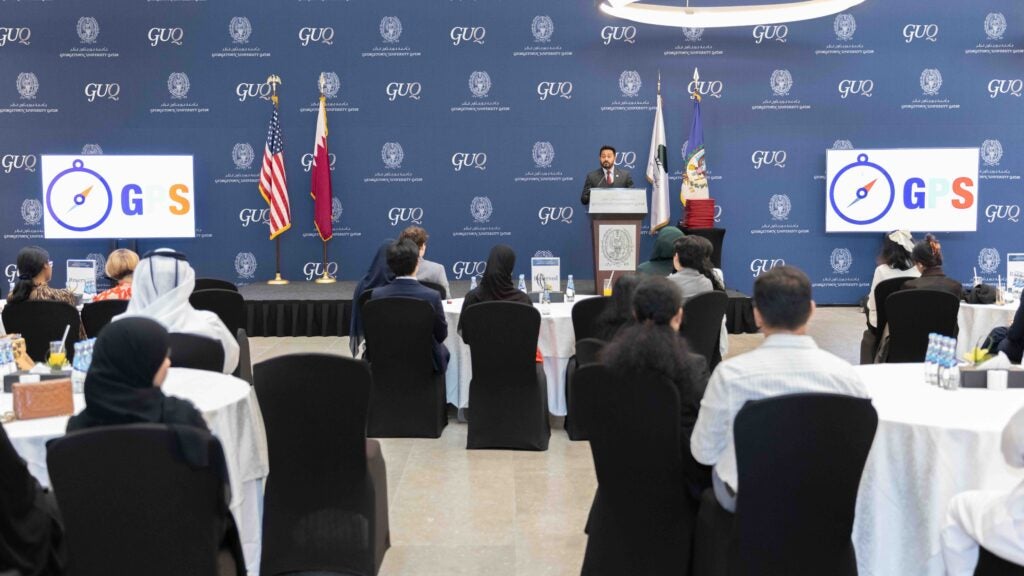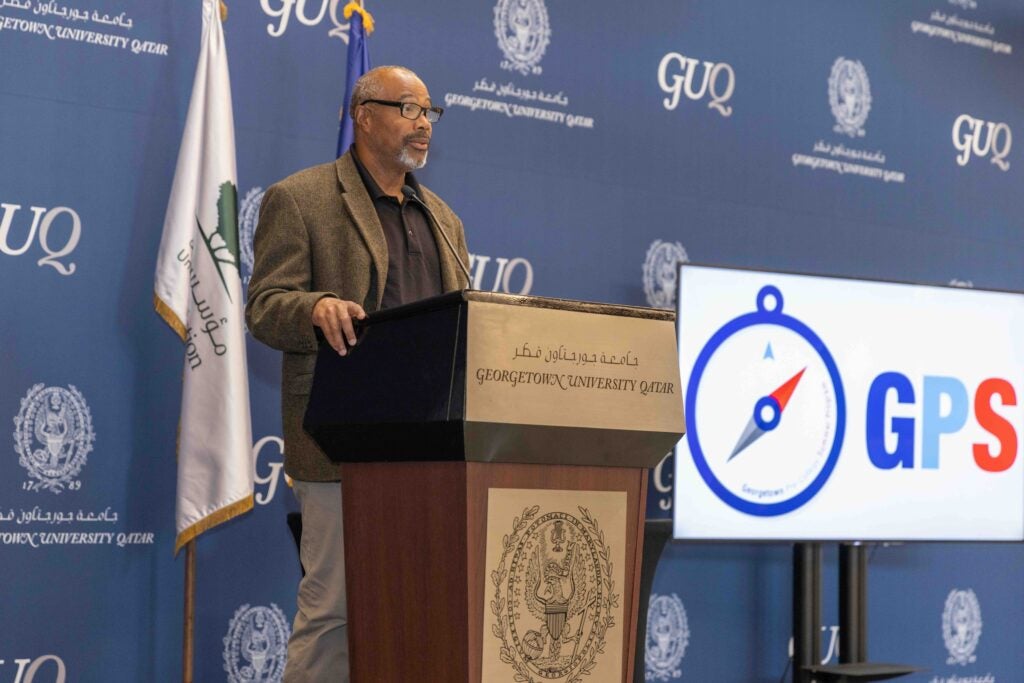A Day in the Life of a GPS Program Participant

Each day at 8 AM, participants of the Georgetown Pre-College Summer (GPS) program gather for their first class, greeted warmly by tutors and instructors. These mentors, many current or former Georgetown University in Qatar (GU-Q) students, play a pivotal role in guiding the participants through a rigorous and enriching academic schedule.
Now in its 15th year, the GPS program was created to bridge the gap between high school and university. Over three intensive weeks, it simulates the freshman year at GU-Q, aiming to familiarize students with international relations and politics, hone essential academic skills, and provide SAT preparation. This year, the program welcomes a diverse cohort of 44 students from 11 nationalities, enhancing the learning environment with varied perspectives and experiences.
Morning
Classes commence with Critical Reading and Writing (CRW), a cornerstone of the GPS curriculum. This course teaches students effective reading strategies and the art of argumentation. One of the four alumni instructors, Anjali Singh (SFS’23), underscores the importance of these skills for university success, saying, “In CRW, we dive deep into textual analysis, helping students uncover deeper meanings. It’s not just about understanding the text, but engaging with it critically and thoughtfully.”
After a short break, students move on to International Relations and Global Politics seminars. These sessions mirror the first-year experience at GU-Q, encouraging participants to tackle complex global issues and contribute to meaningful debate. Jibin Koshy, the Educational Enrichment Manager at GU-Q and leader of the program, emphasizes the program’s focus on critical thinking: “The GPS academic framework is based on Georgetown’s pedagogical approach of how to think and not what to think.”
This year, a new session on international humanitarian law has been added, inspired by current global events. Led by a passionate alumnus, this course introduces students to the legal frameworks governing global conflicts and humanitarian efforts. Students eagerly question the efficacy of international bodies like the UN and explore the moral complexities of global politics.
As the morning progresses, students delve into the Map of the Modern World course, a fascinating exploration of the forces shaping physical geography and their profound impact on human behavior across different regions. This includes understanding global interactions, trade routes, and political boundaries, which are crucial for grasping how nations influence and relate to each other.

Afternoon
When noon arrives, students head to lunch, where they chat about the morning’s classes and get to know each other better. This relaxed time helps them build friendships that often last long after the program ends and connect with peer tutors and instructors.
Areebah Fatima Farooq, a high school student, notes the program’s impact: “Engaging in discussions and interacting with alumni has given me insight into university courses. International Relations has interested me the most, and I now feel more confident in pursuing it.”
Post-lunch sessions include the Global Politics mini-seminar as well as the final academic session of the day, which focuses on SAT preparation. Partnering with Score Plus Princeton Review, GU-Q offers expert guidance through diagnostic tests, strategy sessions, and practice exams, ensuring students are well-prepared for this crucial college entrance exam.
Jood Sheikh (SFS’25), one of six GU-Q student tutors, finds the GPS experience mutually beneficial. “Not only do I get to mentor bright young minds, but their fresh insights on familiar topics have enriched my own understanding,” she says.
Evening
As the day winds down, students reflect on their learning and participate in team-building activities. Thursdays are particularly special, featuring talent shows where students and tutors showcase their hidden talents, from singing and dancing to comedy and impressions.
The GPS program thrives on the strong support from peer tutors and instructors, creating a robust educational experience for all participants. As this year’s program concluded on July 18, students, parents, and mentors gathered for the closing ceremony, celebrating the program’s success and the bonds formed over three weeks.

“GPS equips students with the confidence and skills they need to excel in university life and beyond,” Jibin notes.